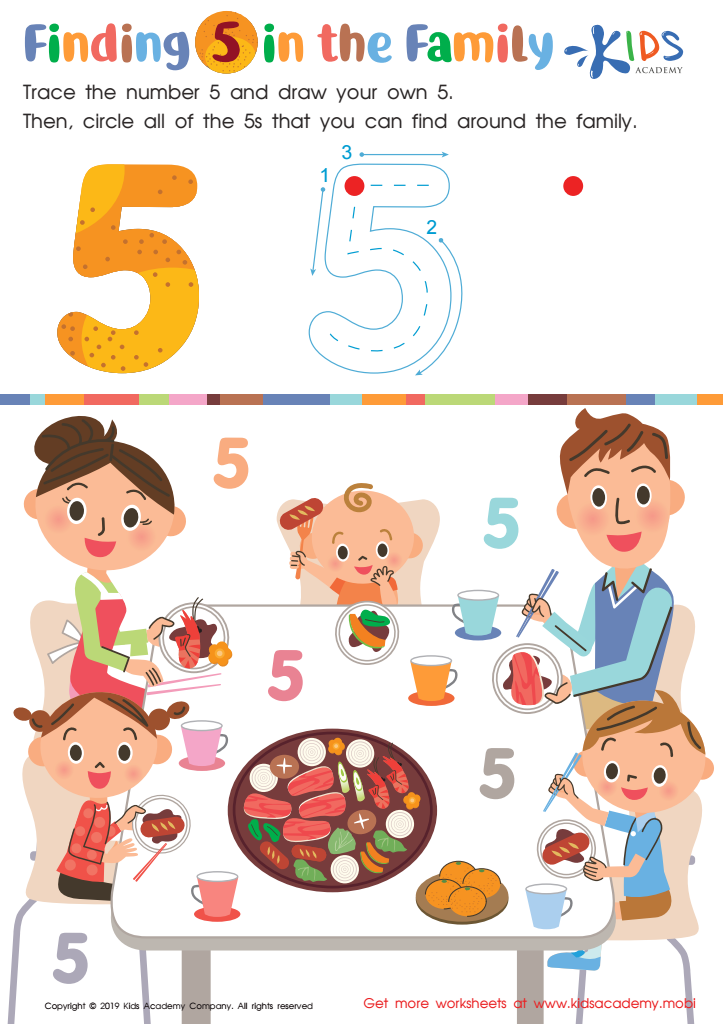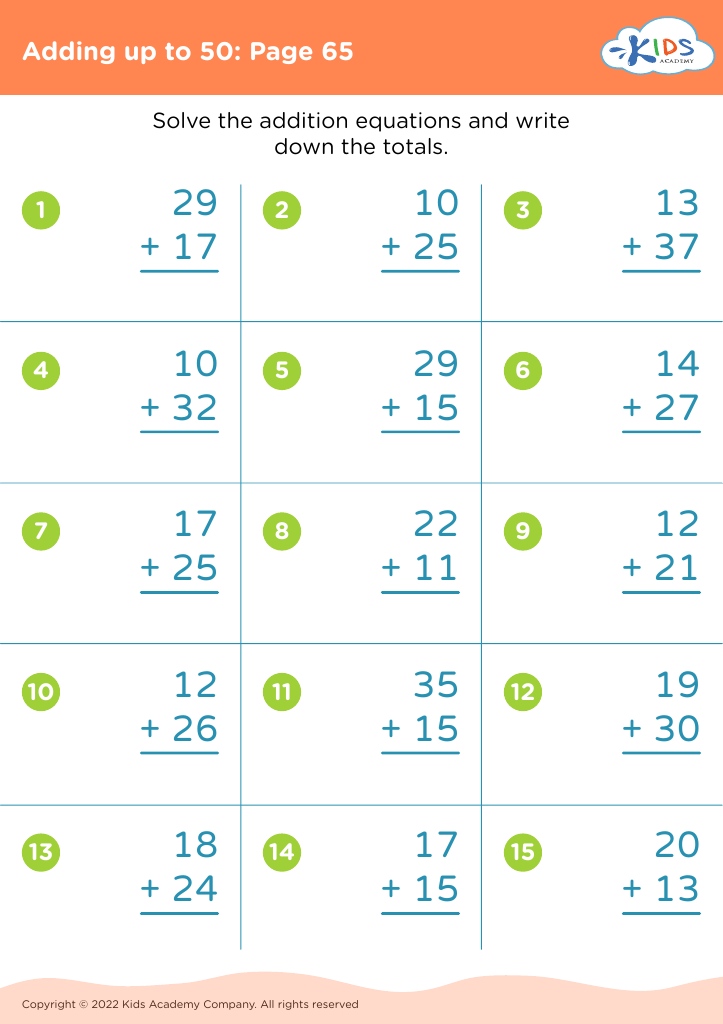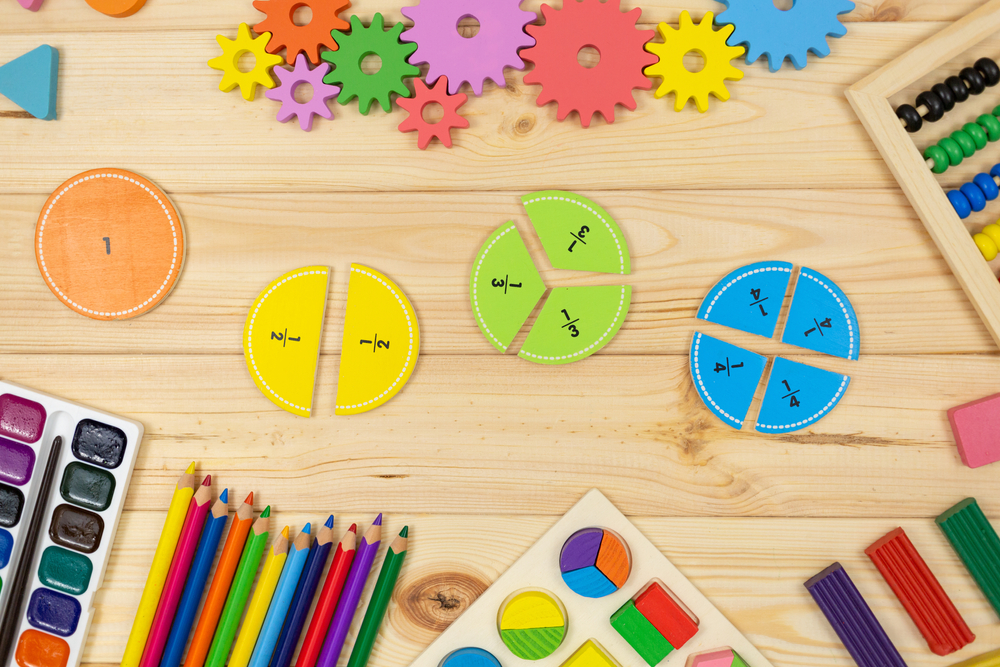Learning subtraction Math Worksheets for Ages 3-7
3 filtered results
-
From - To
Discover engaging subtraction math worksheets designed specifically for children aged 3 to 7. Our collection provides fun and interactive learning opportunities to help young learners master basic subtraction concepts. Each worksheet is thoughtfully crafted to promote essential skills while keeping children entertained. With colorful visuals and simple problems, these resources make learning subtraction enjoyable and accessible. Perfect for parents and educators, these worksheets support a variety of learning styles, encouraging systematic practice and building confidence in math. Explore our printable subtraction worksheets and watch your little ones develop a strong foundation in mathematics as they calculate and solve with excitement!


Finding 5 in the Family Worksheet
Learning subtraction is a crucial foundational skill for children aged 3-7, as it lays the groundwork for future mathematical understanding. At an early age, children are naturally curious and eager to explore numbers, making this an ideal time to introduce them to basic arithmetic concepts. Mastering subtraction helps kids develop critical thinking skills, enhance problem-solving abilities, and promote logical reasoning.
Subtraction education fosters numerical fluency, paving the way for more complex mathematical concepts. For example, children utilize subtraction in everyday situations, like sharing snacks or counting down items, which makes the learning process both engaging and relevant. Moreover, developing a solid grasp of subtraction promotes self-confidence and competence in young learners; fluency in basic math gives children a sense of achievement and encourages future success in academics.
Parents and teachers play a vital role in supporting subtraction learning by providing rich, interactive experiences, establishing a love for math, and creating a stimulating environment. Storytelling, games, and hands-on activities can make subtraction fun. An early focus on subtraction enables children to build strong math skills and prepares them for more advanced learning, ultimately setting the stage for lifelong mathematical proficiency. Investing in children’s mathematical education today ensures their success tomorrow.


 Assign to My Students
Assign to My Students

















